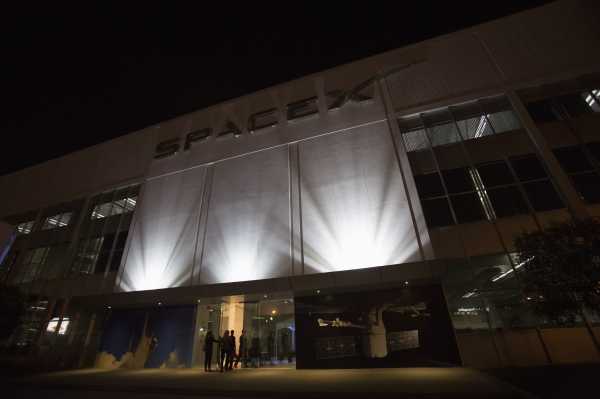Republican says FCC SpaceX decision risks giving Chinese providers an edge

An exterior of the SpaceX headquarters in Hawthorne, California May 29, 2014. REUTERS/Mario Anzuoni
WASHINGTON, Sept 12 (Reuters) – Chinese satellite internet providers could gain a competitive advantage from a decision by Federal Communications Commission (FCC) staff to deny SpaceX $885.5 million in rural broadband subsidies, FCC commissioner Nathan Simington said Monday.
Elon Musk's SpaceX on Friday challenged the FCC's decision rejecting its application for funds tentatively awarded in 2020 under the commission's Rural Digital Opportunity Fund, a multibillion dollar program in which SpaceX was poised to receive $885.5 million to beam satellite internet to U.S. regions with little to no internet connections.
"The decision appears to have been rendered in service to a clear bias towards fiber, rather than a merits-based decision to actually connect unserved Americans," SpaceX's senior director of satellite policy David Goldman wrote Friday. "It it hard not to see it as an improper attempt to undo the (FCC's) earlier decision."
A spokesperson for FCC Chairwoman Jessica Rosenworcel declined to comment.
Simington also raised concerns about the Commerce Department's separate decision to exclude satellite broadband providers from a $42.5 billion broadband internet subsidy fund, saying it would also help Chinese companies.
"These actions will also risk giving Chinese satellite internet providers, who have the full support of their government, a competitive advantage in serving the rest of the world," Simington said.
"This would be especially troubling because it might raise questions for low-earth orbit connectivity companies worldwide about the regulatory risks of choosing to domicile in the United States."
SpaceX's Starlink, a fast-growing network of more than 3,000 satellites in low-Earth orbit, has tens of thousands of users in the United States so far, with consumers paying at least $599 for a user terminal and $110 a month for service.
Rosenworcel said Starlink's technology "has real promise" but that it could not meet the program's requirements, citing data that showed a steady decline in speeds over the past year and casting the service's price as too steep for consumers.
Simington urged FCC commissioners to review SpaceX’s appeal and make sure that Americans in rural areas "get connected as soon as possible.”
He is the second Republican FCC commissioner to raise objections to the decision after Brendan Carr, who previously slammed the agency for rejecting the funds without a full commission vote. The FCC is currently deadlocked 2-2 between Democrats and Republicans.
Reporting by David Shepardson; Editing by Stephen Coates
Our Standards: The Thomson Reuters Trust Principles.
Source:www.reuters.com



